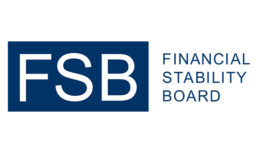Five issues for traditional hedge fund managers to consider when investing in digital assets
By Sarah Crabb, Partner, Simmons & Simmons
Published: 28 June 2021
An increasing number of traditional hedge fund managers are now considering investments in digital assets. As an entry point to investing in this evolving asset class, many established hedge fund managers are seeking to allocate a small portion of one of their existing fund’s portfolios to digital assets rather than launching a bespoke fund product.
Simmons & Simmons hedge funds partner, Sarah Crabb, has been advising managers on specific considerations for funds seeking to include digital assets in their investment universe and sets out her top-five issues to initially consider when seeking exposure to this asset class below.
One: Investment mandate
The first thing to consider is whether the investment objective and investment strategy of the existing fund is broad enough to permit investment in digital assets and whether investing in digital assets would change the overall trading approach of the fund. If an amendment to the investment objective and/or strategy is required in order to invest in digital assets, the relevant procedure for amending the investment objective and/or strategy of that fund will need to be followed which could require
investor notification or obtaining investor consent. An existing fund may already permit investment in derivatives and the view could be taken that employing cryptocurrency derivatives within the portfolio as part of its existing investment strategy is permitted. For those existing funds where the investment mandate is broad enough to permit investment in digital assets, an amendment to the fund’s offering document should be considered in order to include specific risk factors disclosing the particular risks of investments in digital assets, such as price volatility, custody and valuation risks and regulatory and tax uncertainties. It may also be necessary to update the fund’s offering document to reflect changes to the fund service providers.
Two: Service providers
If the fund is permitted to invest in digital assets, the next point to consider is service providers such as administrators, auditors, fund directors, banking partners, custodians and depositaries (if applicable). It should not be assumed that the fund’s existing service providers will be willing or able to service digital asset strategies. Not all of the traditional hedge fund service providers are willing to service funds investing in digital assets or have the necessary expertise to do so, although some will be minded to service a fund investing in digital assets for a significant and longstanding client. It is prudent to have at least a basic level of understanding of the digital assets to be traded in order to understand what is needed from individual service providers in respect of those assets and to be able to discuss their offering with them and spot any limitations.
Three: Custody and depositary services
It is common to appoint a new custodian in respect of digital assets. Due to the particular nature of how digital assets are held in ’hot storage’ or ‘cold storage’ and
use a private key to move digital assets between wallets — a specialist custody provider is needed who has expertise in this area and has relationships with the
major digital asset exchanges. As the space has evolved, there are now a number of alternative custody solutions available. For those funds managed by a UK alternative investment fund manager and marketed into the EU that are required to appoint a depositary-lite service provider, an analysis should be undertaken as to whether a depositary-lite service provider is required to hold any of the digital assets in custody or to verify their ownership. The conclusion of this analysis will depend on the types of digital assets being held in the portfolio and their classification from a regulatory perspective. Finding a depositary-lite service provider who will undertake these services in respect of digital assets, in particular those that are more difficult to categorise such as stablecoins and security tokens, has been challenging to date. UK alternative investment fund managers should also remember the requirement to submit a material change notification to the UK Financial Conduct Authority if changing or appointing additional service providers to carry out depositary functions.
Four: Exchanges
Another point to consider is the exchanges on which digital assets trade as, unlike traditional asset classes, there is not yet a central marketplace for exchange for
digital assets. The available exchanges for digital assets can be of varying quality, some are relatively new and many are unregulated with no listing rules meaning that there may be a higher risk of hacking and failure than when using established, regulated exchanges with a greater level of regulatory oversight, controls and
policies. Bearing the foregoing in mind, as well as certain legal and regulatory requirements to put in place policies, procedures and controls to identify and assess money laundering risks, it would be prudent to carry out appropriate levels of due diligence on the digital asset exchanges to be used. This could include requesting information about the relevant exchange’s anti-money laundering policies and procedures, sanctions controls and its ownership structure.
Five: Tax
最后一点考虑是否投资digital assets will have any impact on the manager’s reliance on any tax safe harbours. Nearly all hedge fund managers operating in the UK do so in reliance on the investment manager exemption (IME). Assuming certain conditions are met, this exemption ensures that UK investment management entities are not subject to a UK tax liability on the profits of their offshore funds. One condition is that the manager must be trading, which is determined by reference to the transactions that the manager is carrying out. The application of the IME is restricted to investment transactions. This exemption is based on a statement of practice first published by HMRC in 2001 when digital assets were not in existence. An unintended consequence is that trading in digital assets does not fit within the types of investment transactions that would mean that the fund is a trading fund. There is therefore some concern that the IME will not apply to UK hedge fund managers in respect of investments in digital assets. This is a ‘watch this space’ area. Conversely for funds investing in digital assets via derivatives, such transactions will fall within the IME and this issue falls away.
Final word
There are a number of points to consider when embarking on diversification into digital assets. Employing cryptocurrency derivatives within a portfolio can be a way to obtain exposure to the upside of digital assets without encountering some of the complexities caused by investing directly in digital assets outlined above.








